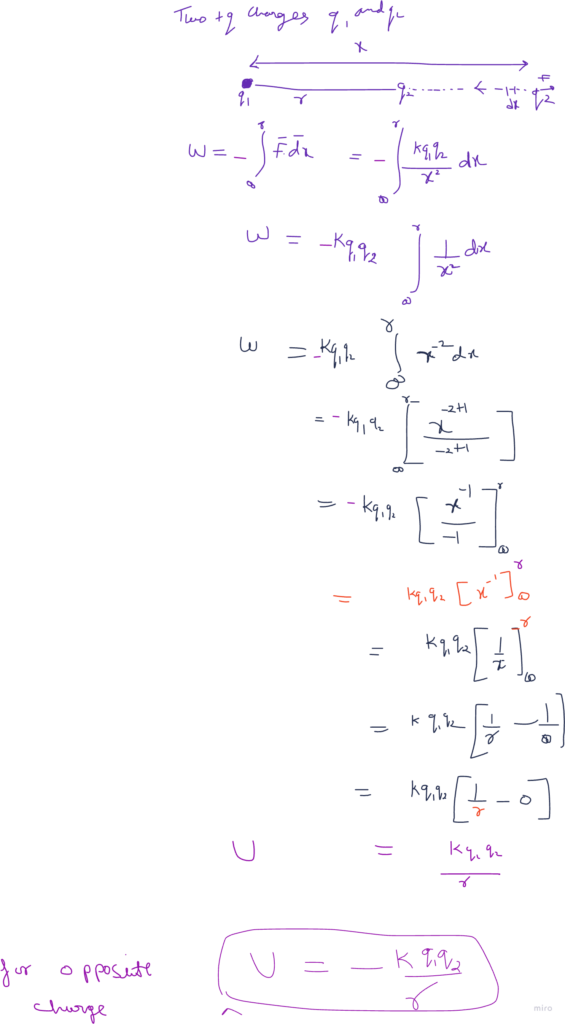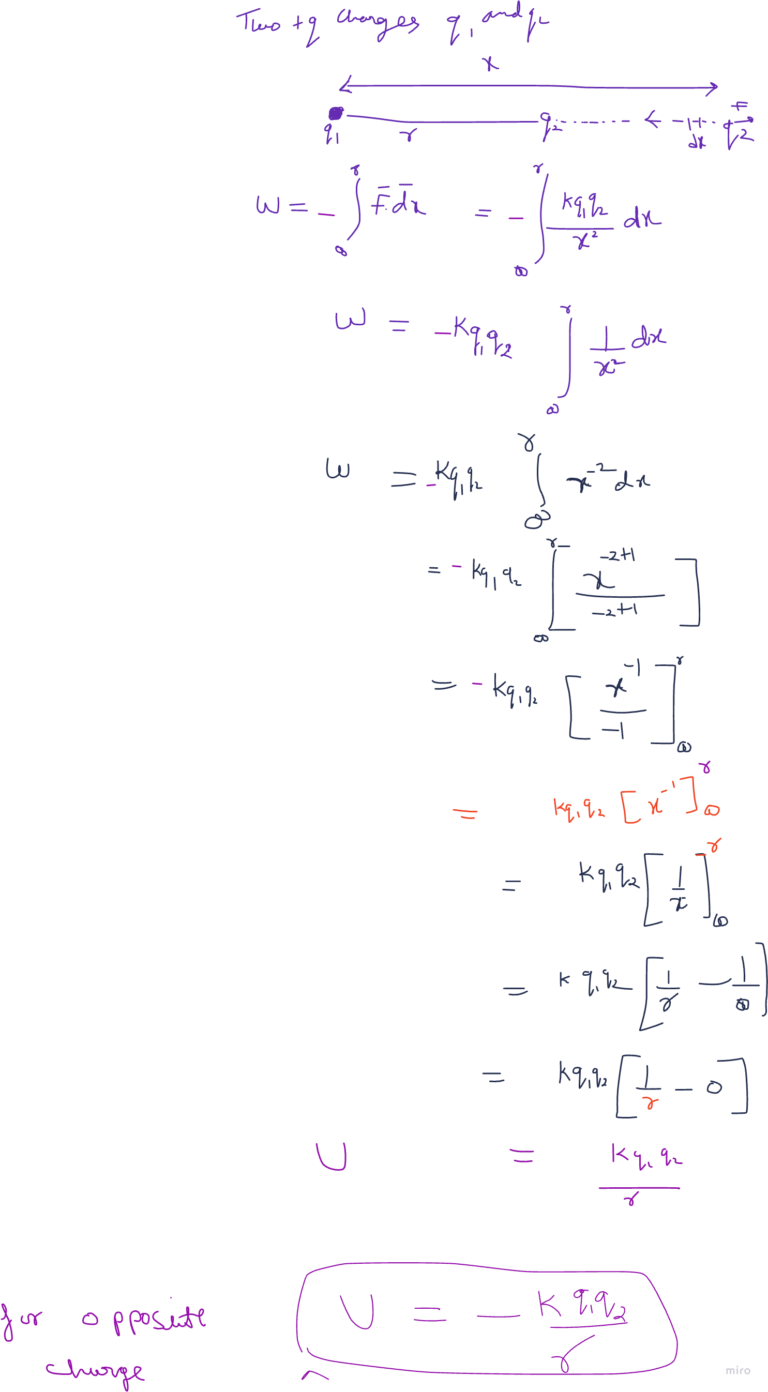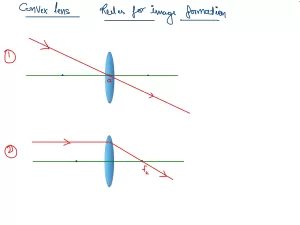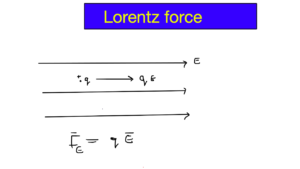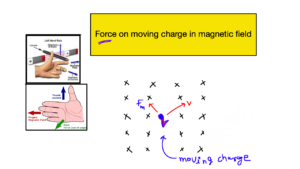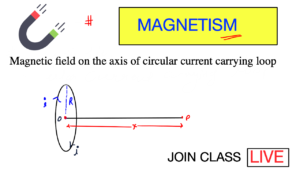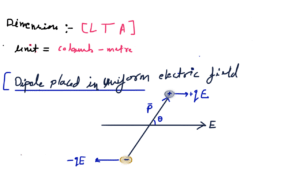Electrostatic potential energy
Potential energy of a system of particles is defined only for conservative fields. As electric field is conservative, so we define potential energy in relation to it. Potential energy of a system of particles is defined as the work done in assembling the system in a given configuration against the interaction forces between them. Electrostatic potential energy is defined in two ways.
- (i) Interaction energy of charged particles of a system.
- (ii) Self energy of a charged object.
Electrostatic Interaction Energy
Electrostatic interaction energy of a system of charged particles is defined as the external work required to assemble the particles from infinity to the given configuration. When charged particles are at infinite separation, their potential energy is taken to be zero as no interaction is there between them. When these charges are moved to form a given configuration, external work is required if the force between these particles is repulsive and energy is supplied to the system, hence final potential energy will be positive. If the force between the particles is attractive, work will be done by the system and final potential energy will be negative.
l Interaction Energy of a system of two charged particles
Figure shows two + ve charges q1 and q2 separated by a distance r. The electrostatic interaction energy of this
system can be expressed as work done in bringing charge q2 from infinity to the given separation from q1
